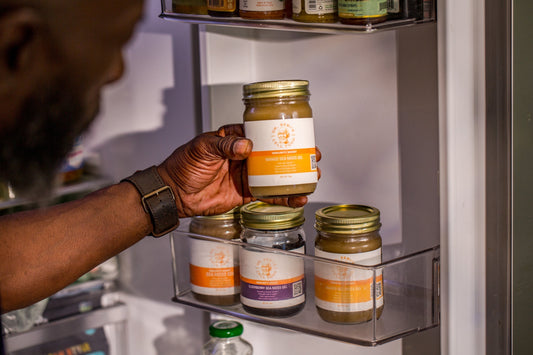The gut microbiome, the community of microorganisms that live in our gastrointestinal tract, plays a crucial role in physical and mental health. When bad bacteria are dominant, the gut microbiome is imbalanced, contributing to some of the most urgent mental health issues of our times, including anxiety and depression.
What do you need to know in order to heal your gut? Learn how to make life more enjoyable, from the inside out!
Mind-Gut Connection Problems
Could your mental health issues really be gut health issues? There are a few key factors that can negatively impact your gut health - and by extension - your mental health.
An unhealthy microbiome contributes to inflammation and a weakened immune system, making the body more susceptible to physical disease and a host of mental health and behavioral issues, including:
- Alzheimer’s
- Anxiety
- Autism
- Bipolar Disorder
- Dementia
- Depression
- Obsessive-compulsive disorder (OCD)
- Post-traumatic stress disorder (PTSD)
- Schizophrenia (1)
Malnutrition
When the gut microbiome isn’t getting the necessary nutrients, harmful bacteria take over. Because the gut is connected to the rest of the body through the vagus nerve (the “information superhighway” of the nervous system), imbalances in the gut cause problems throughout the body, including the brain.
Toxins
Toxins in our diet can also have a significant impact on the gut microbiome and in turn, on our mental health. Pesticides, heavy metals, and artificial sweeteners disrupt the balance of the gut microbiome and cause inflammation of the brain. The gut microbiome plays a critical role in the production of the neurotransmitters that regulate mood and emotions. When the gut microbiome is disrupted by toxins, neurotransmitter production is affected, leading to mental health issues, particularly anxiety and depression.
Other Factors
Chronic stress, lack of physical activity, and poor sleep can also disrupt the gut microbiome and lead to mental health issues. But the good news is: by taking care of our gut health, we can also improve our mental well-being.
5 Benefits of Improving Gut Health
Improving gut health promotes:
Improving Gut Health
When the gut microbiome is balanced and diverse, it promotes good digestion, nutrient absorption, and a strong immune system. When the gut microbiome is imbalanced, it promotes a variety of health problems.
Support Your Microbiome With Dr. Sebi-Approved Foods
A diverse and balanced gut microbiome is critical. Fortunately, a diet rich in Dr. Sebi approved fruits, vegetables, nuts, seeds and alkaline grains supports a beneficial biome. Many of these foods are anti-inflammatory, and all of them have been designed by nature to deliver optimum nutrition to you and your gut microbiome.
As always, it’s important to limit processed foods, sugar, and saturated fats, because (guess what?) they all contribute to an imbalance in the gut microbiome. Processed foods feed bad bacteria, and bad bacteria drive cravings!
Your Stress Levels Affect Your Gut Health
Stress has been shown to negatively impact the gut microbiome. Anything in your life that’s a source of chronic stress (people/places/situations) that can be removed should be removed, otherwise your gut healing efforts are hampered. Regular exercise, meditation, and other stress-reduction techniques all add to the relaxed space you need to create in your innermost intestinal environment.
Gut Health 4 Life!
It is important to understand that maintaining a healthy gut microbiome is not a one-time event, but rather a lifelong process. Continuously making good choices for gut health throughout your life, including a balanced diet and reducing stress, help to keep the gut microbiome balanced and reap the benefits.
4 Steps to Healing Your Gut
Cleansing the gut and enhancing nutrient absorption are important steps in improving gut health. Here are some steps you can take to achieve these goals:
It’ll Be Worth It
Healing the gut microbiome can have a wide range of long-term benefits for overall health and well-being:
- Improved digestion.
- Enhanced nutrient absorption.
- Stronger immune system.
- Better sleep.
- Slow down aging.
- Reduced risk of mental health issues.
- More energy and vitality.
Healing the gut microbiome can have a wide range of long-term benefits for overall health and well-being. By taking steps to improve gut health, such as eating a diet rich in Dr. Sebi-approved foods, reducing stress, and getting enough sleep, we can achieve a healthier gut microbiome and improve our overall mental health and well-being in the long term.
Citations
(1) Nguyen TT, Hathaway H, Kosciolek T, Knight R, Jeste DV. Gut microbiome in serious mental illnesses: A systematic review and critical evaluation. Schizophr Res. 2021;234:24-40.
(2) Gutierrez Lopez DE, Lashinger LM, Weinstock GM, Bray MS. Circadian rhythms and the gut microbiome synchronize the host’s metabolic response to diet. Cell Metab. 2021;33(5):873-887.


















































